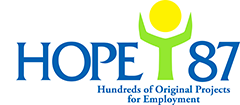SEEP – Supporting Education in Emergencies in Pakistan

The number of displaced families in host communities (Jan'16) was 62,363 and 27,840 families
Respectively in districts Bannu and Peshawar. The total number of displaced families has reduced from 191,018 to 98,738 as on 10.11.16. The likelihood of young children dropping out of school is significantly higher in conflict-affected areas and research has highlighted in particular the causal adverse impact of conflict exposure in terms of reducing the number of years children spend in school and restricting grade progression. More girls than boys are out of school. The problem is much worse in lower secondary school than in primary school.
The project foresees enabling access to education for children currently out of school (IDPs and host communities), strengthening the quality aspects of education in emergencies, including the recruitment and capacity building of teachers and reflect protection and linking education to other life-saving humanitarian sectors, such as WASH and nutrition in order to reduce the vulnerability of children affected by conflict.
The problems identified demand response through five interwoven strands:
- Establishing and supporting new pre-primary and primary community based school (CBS) classes, as well as supporting reintegration to formal schools, to proactively address issues of access, transition and retention.
- Ensuring that learning spaces are sound, sufficiently equipped and resourced, and provide welcoming, child-friendly and safe learning zones
- Training and supporting teachers so as to enable them to offer better learning outcomes
- Ensuring that communities are actively engaged in supporting and demanding education and are more directly involved in education programmes
- Collaborating with government, other civil society organisations (CSOs) to build capacity and address issues of protection, nutrition, WASH and future sustainability.
In order to increase excluded children's (especially girls) participation and retention in terms of (i) access (ii) quality of learning environments and (iii) the school and broader socio-cultural environment, the project will work jointly with schools, communities, local education officials and other key stakeholders to establish, operate and sustain an integrated set of interventions as follows whereby needs of children in Dimensions 1, 2 and 3 will be addressed directly and Dimensions 4 and 5 indirectly:
The specific project results are:
- Improve access to quality education in protective environment for girls and boys (IDPs and host communities) in host and return areas
- Strengthened capacity of stakeholders to cope with post displacement needs (education) of IDP girls and boys in both host and return areas

